
Summer reading recommendations from Michael Seidlinger as part of this year’s Summer Reads.
***
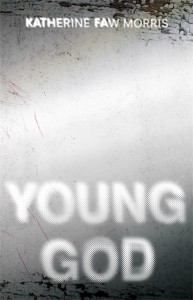 Young God by Katherine Faw Morris (May 7th)
Young God by Katherine Faw Morris (May 7th)
I’ll start with one that really caught me off-guard. This was one of the books that I read front to back in one sitting; it’s not impossible given how the majority of it consists of taut, stripped down, really gritty and dark prose. Quite a few chapters are a single page long; for a few, they’re a paragraph, a single sentence on the page. The most interesting aspect of the book is how different it is, how much it reads like something you’d expect from an indie publisher. This is a good thing—it’s off-putting, dark, and completely alien compared to the other titles sharing the same shelf space at the nearby bookstore chain. Young God is prepped to leave a mark, and I really hope it does. It surely did for me.
 Backup Singers by Sommer Browning (June 3rd)
Backup Singers by Sommer Browning (June 3rd)
Sommer Browning’s latest book of poetry has quickly risen to the top of my must-read pile. Via her twitter presence as well as the various poems/excerpts I’ve read online, Browning’s proved to be one of the funniest, most clever and honest poets rocking the indie scene right now. This is a book you’ll want to read while lounging with some liquor on a lazy Saturday afternoon.
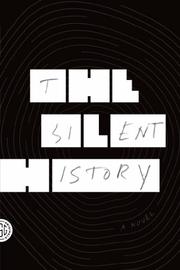 The Silent History by Matthew Derby, Eli Horowitz, and Kevin Moffett (June 10th)
The Silent History by Matthew Derby, Eli Horowitz, and Kevin Moffett (June 10th)
I still remember when this came out on smartphones as a sort of alternate-reality storytelling experience. The basic gist is about an epidemic spreading among children wherein they do not speak and do not respond to language. It’s similar to Ben Marcus’s The Flame Alphabet yet different enough to be its own memorable piece. I didn’t have a smartphone at the time and I wasn’t living in a city participating in the experience (something about using your smartphone in flagged areas to receive storytelling fragments) so I felt left out. I hoped that it would be compiled into a book. Sure enough: Boom, it’s happening this June.
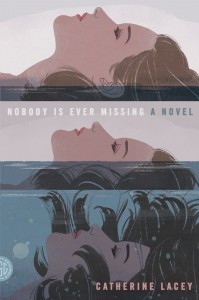 Nobody is Ever Missing by Catherine Lacey (July 8th)
Nobody is Ever Missing by Catherine Lacey (July 8th)
Give me a book that delves into existential crisis any day. I don’t know why I’m so enamored by writing that doesn’t stray away from the big questions but I believe it’s because it’s stuff that we think about a lot. Questions like—what might have been? What am I doing with my life? And is it too late to adjust/change things? Lacey’s novel looks to be an important work that serves a unique take on the crises that ultimately outline adulthood.
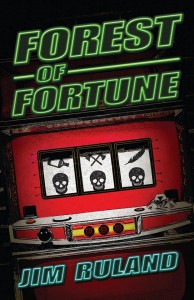 Forest of Fortune by Jim Ruland (July 31st)
Forest of Fortune by Jim Ruland (July 31st)
The characters in Jim Ruland’s latest consist of an alcoholic, an epileptic, and a gambling addict haunting and being haunted by their activities in the rundown, decrepit Thunderclap Casino. There’s something otherworldly about the book that has me intrigued and I’m a sucker for a well-written book about strife, especially gambling. Based on what I’ve read so far, this is going to be one that you won’t want to miss.
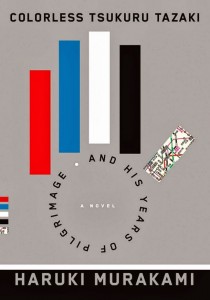 Colorless Tsukuru Tazaki and His Years of Pilgrimage by Haruki Murakami (August 12th)
Colorless Tsukuru Tazaki and His Years of Pilgrimage by Haruki Murakami (August 12th)
New Haruki Murakami in time for the end of the summer. Yup. I’ll take it with whiskey on the rocks and a cigar, thank you.
Tags: michael seidlinger, summer reads

Two of these sound potentially interesting. 1.) Young Gods. But what’s it about? “Different” and “dark” isn’t enough. (“Dar” today describes every work of art out there Been to the movies lately?) 2.) Nobody Is Ever Missing. I agree that readers look for the Big Questions. But “What am I doing with my life?” is too solipsistic to be a Big Question.
Official copy for “Young God”:
Stripped down and stylized—Winter’s Bone plus Less Than Zero—the sharpest, boldest, brashest debut of the year
Meet Nikki, the most determined young woman in the Carolina hills. She’s determined not to let the expectations of society set her future; determined to use all the limited tools at her disposal to shape the world to her will; determined to preserve her family’s domination of the local drug trade despite the fact that her parents are gone. Nikki is thirteen years old.
Opening with a death-defying plunge off a high cliff into a tiny swimming hole, Young God refuses to slow down for a moment as it charts Nikki’s battles against the powers that be. Katherine Faw Morris has stripped her prose down to its bare essence—certain chapters are just a few words long—resulting in an electric, electrifying reading experience that won’t soon be forgotten. She quickly gets to the core of Nikki, her young heroine, who’s only just beginning to learn about her power over the people around her—learning too early, perhaps, but also just soon enough, if not too late.
Evoking the staccato, telegraphic storytelling style of James Ellroy but with the literary affect of a young Denis Johnson and a fierce sense of place worthy of Flannery O’Connor or Donna Tartt, Morris is a debut novelist who demands your attention—and Nikki is a character who will cut you if you let your attention waver.
Official copy for “Nobody is Ever Missing”:
You can run all the way to New Zealand, but eventually you’ll catch up with yourself
Without telling her family, Elyria takes a one-way flight to New Zealand, abruptly leaving her stable but unfulfilling life in Manhattan. As her husband scrambles to figure out what happened to her, Elyria hurtles into the unknown, testing fate by hitchhiking, tacitly being swept into the lives of strangers, and sleeping in fields, forests, and public parks.
Her risky and often surreal encounters with the people and wildlife of New Zealand propel Elyria deeper into her deteriorating mind. Haunted by her sister’s death and consumed by an inner violence, her growing rage remains so expertly concealed that those who meet her sense nothing unwell. This discord between her inner and outer reality leads her to another obsession: If her truest self is invisible and unknowable to others, is she even alive?
The risks Elyria takes on her journey are paralleled by the risks Catherine Lacey takes on the page. In urgent, spiraling prose she whittles away at the rage within Elyria and exposes the very real, very knowable anxiety of the human condition. And yet somehow Lacey manages to poke fun at her unrelenting self-consciousness, her high-stakes search for the dark heart of the self. In the spirit of Haruki Murakami and Amelia Gray, Nobody Is Ever Missing is full of mordant humor and uncanny insights, as Elyria waffles between obsession and numbness in the face of love, loss, danger, and self-knowledge.
[…] FOREST OF FORTUNE in the middle of a Katherine Faw Morris-Haruki Murakami sandwich in Michael Seidlinger’s SUMMER READS at HTML Giant. […]